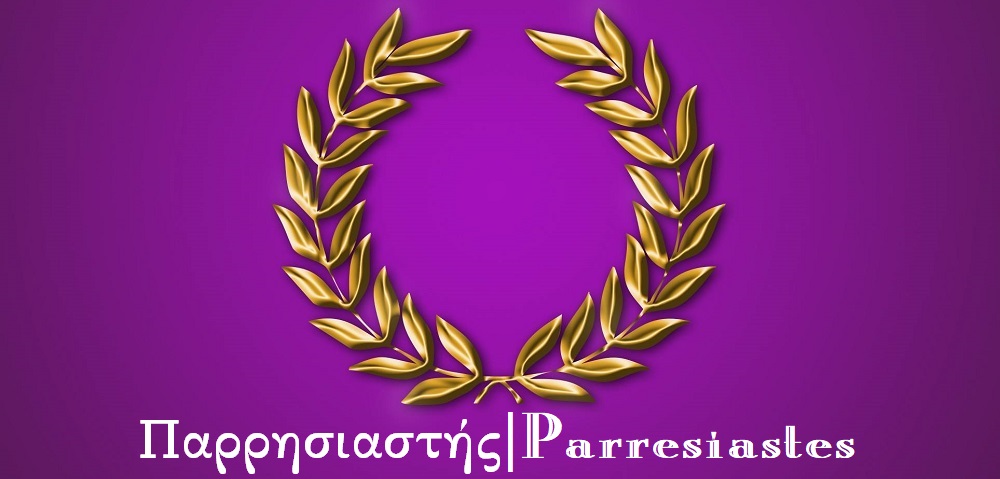First published on hellenismos.org on June 1, 2022.
The Gaulish
polytheist organization Toutâ Galation invited the pagan YouTuber and Genocide
denier “Aliakai” to speak at their this year’s Touta Galation Conference.
“Aliakai” is known in the Hellenic community for culturally appropriating
Hellenic tradition and spreading false information about Hellenic collectives.
In the past,
“Aliakai” has used an ethnocentric rhetoric in order to
discredit Hellenic organizations who play a major role in the
Hellenic re-Indigenization movement, known as re-Hellenization
(“epanellinisi”). She also denied
Greek genocide, reproducing Turkish nationalist propaganda and ignoring
the empirical data. As such, she denies the dignity of innocent victims who
suffered under Atatürk’s nationalism. In addition to that, her genocide denial
also entails an assault on the collective dignity of the Hellenic people.
Anti-Hellenism
is widespread in Anglo-American paganism, but only a few pagans have openly
denied Greek genocide to date. However, what all colonial pagans have in
common, whether they deny Greek genocide or not, is the attack on the Hellenes‘
right to self-determination which is anchored in Article I of the Charter of
the United Nations. But Hellenism is not the only culture facing the
imperialist ambitions of paganism and the New Age movement.[1] On the contrary,
Hellenes are one of many peoples whose history, rites and ethnonyms have been
desecrated, commercialized and abused by imposters,
cultists and their followers who rationalize their behavior in a manner that is
consistent with their ahistorical approach to indigenous cultures.
Although she
was dismantled many times, “Aliakai” still pretends to be a Hellenist[2], even
though she does not speak Greek. Still pretends to be part of the Hellenic community[3],
while the Hellenic community is fending off her and her followers‘ ongoing
attempt to usurp the Hellenes‘ sovereignty over their own culture. For them,
Hellenes have no say over Hellenism.[4] They say this quite openly. And yet
they claim to be part of an ethno-cultural group whose fundamental right they
undermine. But logic was never paganism’s strength. In the light of the above,
it is obvious that this particular branch of paganism is, if we look at it
carefully, the counter-program
to re-Hellenization, which is an effort to reclaim Greeks‘ sovereignty
over their imagination and break the chains of Christianity, but also put an
end to the exploitation and distortion of Hellenic tradition by occultism,
paganism, the New Age movement and nationalism.
In the video
below, you hear “Aliakai” speaking at the Touta Galation Conference 2022. As
showed above, her renewed attempt to speak on behalf of Hellenism is only one
link in a chain of countless transgressions. But paganism’s depravity is
nothing new. More important is the fact that she was invited by Toutâ Galation
to participate in their conference, which raises the question of their stand on cultural
appropriation and pagan colonialism. There can be two reasons for
her invitation: either the Toutâ Galation did not run a background check on her
or they know about her, but have no problem with her activities. Whatever the
case, by inviting a pagan colonialist and Genocide denier to speak at their
conference, they offered a platform to cultural appropriation, Genocide
denial, disinformation, ethnocentrism[5] and anti-Hellenism.
The European
Congress of Ethnic Religions (ECER) and, most importantly, the Hellenic community
must know this and address it properly.
Notes
[1] See:
“Declaration of War Against Exploiters of Lakota Spirituality.”
[2] Hellenist: a person of non-Greek ancestry who is Greek in language,
religion and ethos (“culture”).
[3] Hellenic community: a community of the Hellenic people.
[4] Hellenism or Hellenismos: the indigenous Hellenic culture, also known as
“Hellenikon.”
[5] Ethnocentrism: understanding and judging “the professed convictions and
other behaviors and cultural products of persons in other societies in terms of
the categories and standards of one’s own” (Benson Saler: Conceptualizing
Religion: Immanent Anthropologists, Transcendent Natives, and Unbounded
Categories, New York/Oxford, 2000, p. 8-9).
